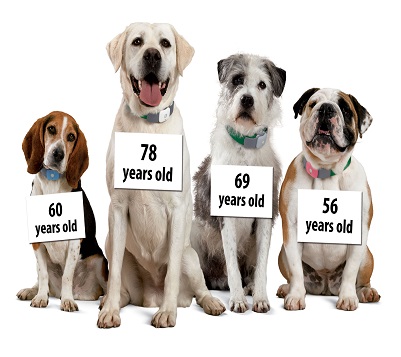Candid Insights
Exploring the latest trends and stories that shape our world.
Pawsitively Golden: Navigating the Senior Pet Care Journey
Discover essential tips and heartfelt advice for caring for your senior pet. Join us on this rewarding journey of love and companionship!
Essential Tips for Senior Pet Care: Keeping Your Golden Happy and Healthy
Caring for senior pets, particularly your beloved Golden Retriever, requires special attention to ensure they remain happy and healthy in their golden years. Regular veterinary check-ups are essential; aim for at least bi-annual visits. During these appointments, discuss any changes in behavior or health that you have noticed. Nutrition also plays a significant role in their wellness—opt for a high-quality, age-appropriate diet that supports their joint health and maintains a healthy weight. Additionally, incorporating joint supplements can be beneficial to keep them spry and active.
It's crucial to provide mental and physical stimulation to your senior Golden. While they may not have the same energy as they did in their youth, keeping their mind engaged with puzzle toys or low-impact activities like gentle walks can make a world of difference. Furthermore, consider establishing a consistent routine to help reduce anxiety and provide a sense of stability. Don't forget the importance of hydration; always ensure fresh water is available. By following these tips, you can help ensure that your senior Golden enjoys a fulfilling and joyful life!

Understanding the Common Health Issues in Senior Dogs
As our beloved pets age, they often experience a variety of health challenges that can impact their quality of life. Understanding the common health issues in senior dogs is essential for pet owners to ensure their furry friends receive the appropriate care. Some of the prevalent conditions include arthritis, dental disease, and heart problems. Arthritis, a degenerative joint disease, affects mobility and can make everyday activities painful for your dog. Regular veterinary check-ups and appropriate pain management are crucial for maintaining their comfort and well-being.
Another significant health concern is cognitive dysfunction syndrome, which can cause behavioral changes similar to dementia in humans. Symptoms may include disorientation, disrupted sleep patterns, and changes in appetite. Regular mental stimulation and interactive play can help alleviate some of these symptoms. Furthermore, routine vaccinations and dental care are vital to prevent secondary health issues. Being proactive about these common health issues in senior dogs will not only enhance their happiness but also extend their lifespan.
How to Create a Comfortable Living Space for Your Aging Pet
Creating a comfortable living space for your aging pet involves several thoughtful considerations. First, assess your pet's mobility and energy levels. If your pet struggles to climb stairs or jump onto furniture, it might be time to rearrange your living space. Use non-slip mats to prevent accidents and provide soft bedding in a quiet, easily accessible area. Additionally, create cozy nooks where your pet can retreat for some peace and relax without disturbances. Remember, an aging pet thrives in an environment that is both safe and calming.
Another crucial aspect of enhancing your pet's living space is ensuring proper temperature control. As pets age, they can become more sensitive to heat and cold. Maintain a comfortable climate by using space heaters or fans as needed, and always ensure they have access to fresh water. Additionally, consider investing in pet-friendly furniture and ramps if needed, so your pet can navigate their surroundings with ease. By focusing on these elements, you can significantly improve your aging pet's quality of life and create a space where they feel truly at home.